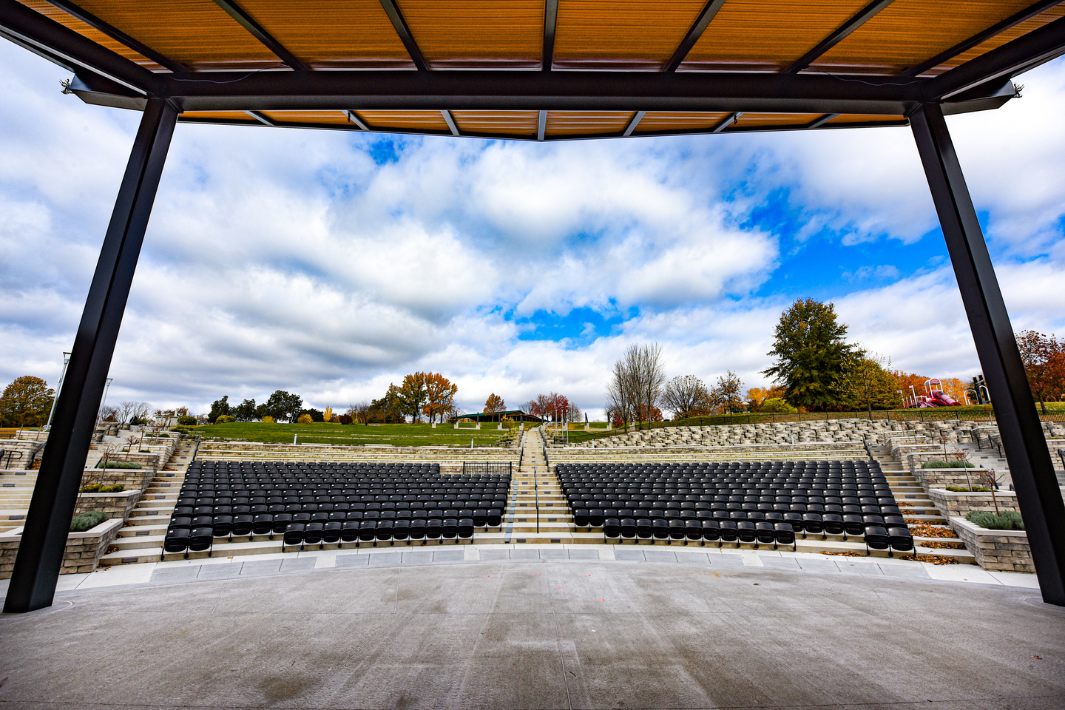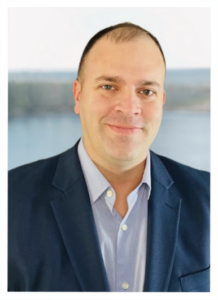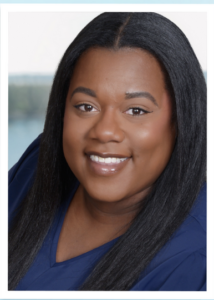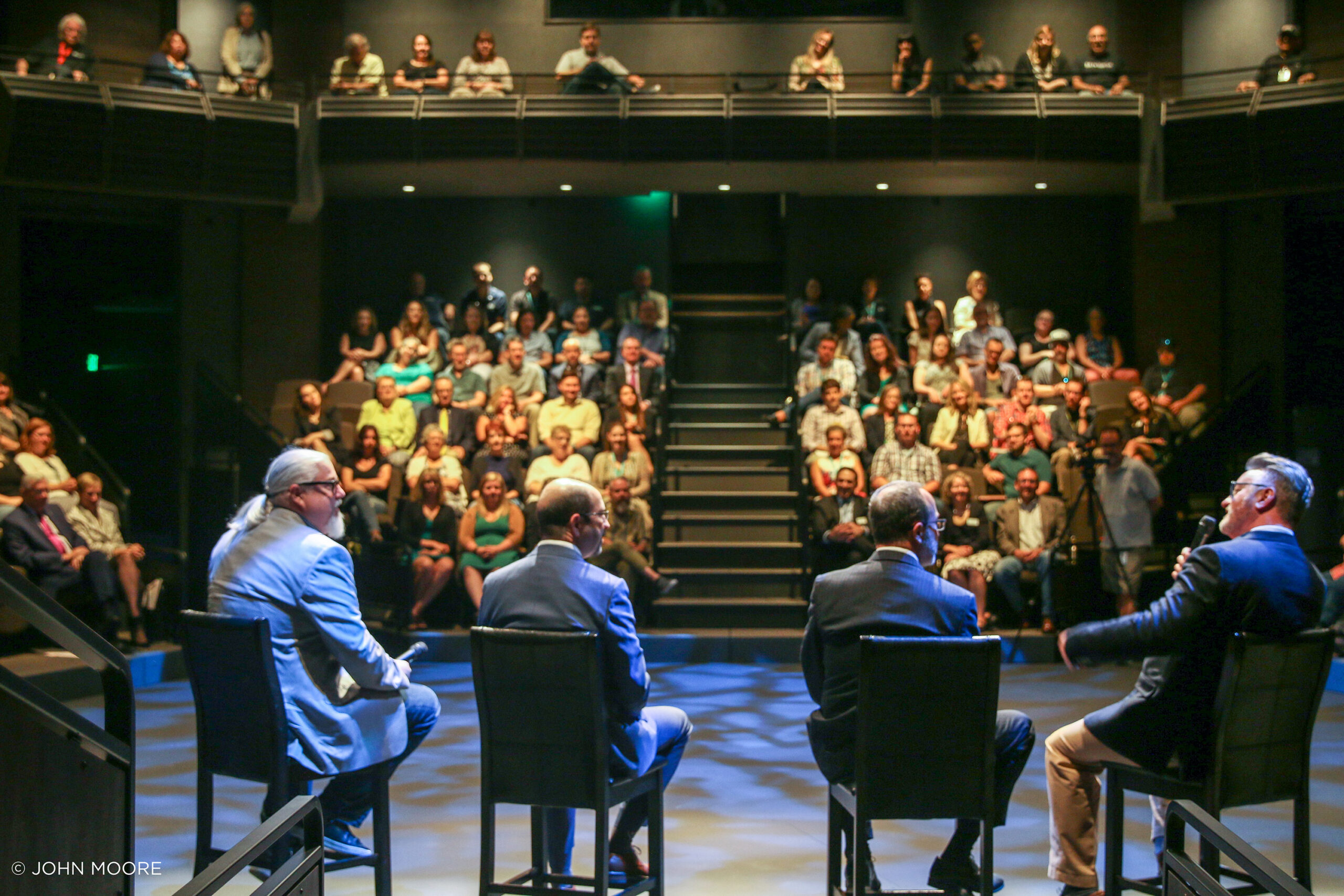The Warner Theatre Announces Partnership with Ticketing and Fundraising Leader Paciolan

The new Paciolan partnership includes various tools for purchasing and managing tickets through a mobile-centric platform where patrons will experience the convenience of buying mobile tickets, receiving them via text message, and accessing the venue with their phones. Additionally, patrons and subscribers unable to attend events can transfer or exchange tickets using mobile account management tools, facilitating the sharing of unused tickets.
Stephanie Fried, Co-Executive Director of Warner Theatre
The Warner Theatre will also use Paciolan’s email marketing solution, providing patrons with tailored alerts of upcoming events and special offers based on their interests and affinities shown via past purchases and attendance history.
Deana Barnes, President of Paciolan
The Warner Theatre’s partnership with Paciolan is an extension of its relationship with The Bushnell Performing Arts Center. This partnership will provide the Warner Theatre with additional regional support and offer a centralized infrastructure along with resources and best practice sharing.
The Warner Theatre will benefit from Paciolan’s signature service and support, with their staff paired with highly experienced client partners, e-commerce operations specialists and email marketing specialists. These specialists will assist with strategic planning, share best practices, and consult on all Paciolan tools. With Paciolan’s centralized support and built-in fraud monitoring and protection services, The Warner Theatre will ensure a secure system helping to mitigate the risk of fraudulent activities.
Rich Thompson Named New Executive Director of the Capital Region Mu Healthcare Amphitheater

Capital Region MU Healthcare Auditorium
VenuWorks is pleased to announce the appointment of Rich Thompson as Executive Director of the Capital Region MU Healthcare Amphitheater, Jefferson City’s premier outdoor entertainment destination. This transition marks an exciting new chapter as the venue prepares for its 5th operational season under the management of VenuWorks, a nationally recognized leader in venue management. Thompson will officially begin his role on February 17, 2025.
Rich Thompson brings a wealth of experience to Jefferson City, currently serving as Sales and Marketing Manager at the VenuWorks-managed Bridge View Center in Ottumwa, IA. A proven professional with deep expertise in event management and audience engagement, Thompson is uniquely prepared to lead the Amphitheater into a new era of growth and success.
“We are delighted to welcome Rich Thompson as the new Executive Director of the Capital Region MU Healthcare Amphitheater,” said Steve Peters, Founder and CEO of VenuWorks. “Rich’s extensive experience in event planning, sponsorship development, and audience engagement makes him the ideal leader to continue building on the Amphitheater’s success. His vision and energy will not only enhance the venue’s reputation as a premier destination for live entertainment but also strengthen its role as a vital cultural and economic asset for the Jefferson City community. We’re excited for the bright future ahead under his leadership.”
Thompson is equally enthusiastic about the opportunity. “I am thrilled to join the dynamic team at the Capital Region Amphitheater,” he said. “This venue has established itself as an exceptional space for live entertainment and community events, and I’m eager to work alongside partners, sponsors, park board and city leaders to continue its success story.”
Managed by VenuWorks since its opening in 2021, the Capital Region MU Healthcare Amphitheater has quickly become a cultural and economic asset for the Jefferson City area. Nestled in a picturesque riverside setting, the Amphitheater features 600 reserved seats and space for 2,400 general admission patrons. Its expansive programming includes national touring acts, community gatherings, and civic events, all of which have contributed to its growing reputation.
VenuWorks’ Impact on Jefferson City
Over the past four seasons, VenuWorks has played an integral role in elevating the Amphitheater’s profile. Highlights from 2024 alone reinforce its value to the local community:
- Economic Impact: The venue generated a significant $715,000 in economic activity, benefiting local businesses from hotels to restaurants.
- Attendance: Nearly 22,000 attendees enjoyed a diverse slate of concerts, festivals, and special events in 2024.
- Community Engagement: VenuWorks has fostered relationships with local organizations, such as Vet Tix, through which 120 tickets were donated to veterans in 2024. The Amphitheater also hosted important community events like the Walk to End Alzheimer’s and the Cole County Drug Treatment Court Graduation.
- Event Excellence: The Amphitheater was recognized with 1st place in the Best of Jefferson City awards for live music and 2nd place for live theatre/live entertainment in 2024, cementing its position as a top entertainment venue.
Additionally, the venue’s robust marketing strategy, valued sponsorships, and partnerships with local businesses have strengthened its connection to Jefferson City’s residents and visitors. Sponsors like Capital Region MU Healthcare and Central Bank, among others, have been instrumental in enhancing the fan experience and ensuring the venue’s sustainability.
World-Class Entertainment
VenuWorks has consistently delivered a stellar array of artists and acts to the Amphitheater. Headliners in recent years have included nationally known performers such as Chris Janson, Nitty Gritty Dirt Band and Everclear, while community events like JC Parks KidsFest have welcomed thousands of attendees. These efforts affirm the Amphitheater’s mission to provide world-class cultural, educational, and recreational opportunities for the region.
Looking Ahead
The upcoming 2025 season promises to be another remarkable chapter in the Amphitheater’s storied history. Under Thompson’s leadership and with the continued support of VenuWorks, the Capital Region Amphitheater is poised to deepen its impact—entertaining, enriching, and engaging the Jefferson City community for years to come.
For more information about upcoming events and sponsorship opportunities, visit www.crmuamphitheater.com.
Mentor Connector Program Now Accepting Applications for Spring 2025 Cycle

Mentor Connector Spring Cycle Begins Soon – Apply Now!
Are you ready to accelerate your career growth and build lasting professional relationships? IAVM’s Mentor Connector Spring Cycle is just around the corner, and it’s the perfect opportunity to take your career to the next level.
The Mentor Connector Program is designed to connect up-and-coming venue professionals with experienced leaders in the industry. Whether you’re a young professional looking for guidance or a seasoned expert interested in sharing your expertise, this program is for you.
Why Participate?
- For Mentees: Gain insights and advice from leaders who have navigated the challenges of our industry. Learn about best practices, career advancement, and how to succeed in today’s evolving venue management environment. Apply now to be a Mentee!
- For Mentors: Contribute to the growth of the next generation of venue professionals. Share your knowledge, make a meaningful impact, and expand your own leadership skills through mentoring. Apply now to be a Mentor.
Don’t miss this chance to build valuable connections, develop new skills, and be part of a thriving community of professionals. Whether you’re looking to learn or give back, the IAVM Mentor Connector offers a unique platform for growth.
Application deadline – March 7, 2025. Must be a current IAVM member to participate.
SearchWide Global Expands Team with Three New Hires Across Three Divisions
SearchWide Global announced the onboarding of three new team members, each bringing profound expertise and innovative skills to further drive organizational success. Effective January 13, 2025, Carmen Rodgers, Chris Bates, and Danielle Loney joined SearchWide Global.

Carmen Rodgers, Executive Recruiter
Carmen Rodgers steps into the role of Executive Recruiter for the Experiential, Tradeshows, Events & Venues division. With over two decades of experience in recruiting and talent management, Carmen is known for her imaginative talent acquisition strategies and inclusive hiring practices. Her tenure as Talent Acquisition Director at EssenceMediacom with their bespoke agency Media Futures Group and pivotal roles at Colossal Media, Freeman, and Wyndham Hotels underscore her ability to innovate recruitment processes. As an expansion of her professional achievements, Carmen is a passionate singer/musician and has been writing and recording music for over 20 years.
“Carmen’s creative insights and extensive experience in recruitment will significantly enrich our team’s capabilities and strategic direction. We are thrilled to have her on board,” said Andrea Christopherson, Global Head of Experiential, Tradeshows, Events & Venues.

Chris Bates, Executive Recruiter
Chris Bates joins SearchWide Connect as an Executive Recruiter, providing noteworthy expertise in sourcing and recruiting talent across many sectors. His previous work at Magnit included collaborating with renowned global brands such as Disney and Netflix, highlighting his strategic acumen in high-volume staffing. Equipped with an MBA, Chris’s prior achievement in building partnerships at HRU Technical Resources proves his capability to enhance recruitment strategies and maintain crucial industry relationships.
“Chris’s strategic approach to talent acquisition will enhance our recruitment strategies and business partnerships. He will play a key role in providing exceptional candidates at a faster pace than traditional retained executive search services,” said Wendy Moran, Global Head of SearchWide Connect.

Danielle Loney, Project Coordinator
Danielle Loney takes on the role of Project Coordinator within the Marketing & Experience team, primarily supporting SearchWide Connect. With a solid foundation of over ten years in customer-facing roles, Danielle excels in managing diverse projects and fostering team collaboration. Her leadership at Pasco Kids First and success as an Account Executive at SurveyMonkey illustrate her ability to exceed organizational goals. Holding a master’s degree in Developmental Disabilities and certifications in Project Management and Sales Development, Danielle is set to drive projects to successful outcomes with her innovative strategies and collaborative spirit.
“We are excited to welcome Danielle to our team. Her exceptional project management skills and strategic insight are assets that promise to drive innovative outcomes for our projects,” said Cambria Jones, Chief Marketing & Experience Officer at SearchWide Global.
“The addition of Carmen, Chris, and Danielle to our team reflects our commitment to excellence and leadership. Their extensive expertise will undoubtedly bolster our growth as we celebrate 25 years in business,” stated Mike Gamble, Chairman and CEO of SearchWide Global.
TheatreDNA Expands Feasibility & Strategy Offerings with Acquirement of VGPAP

TheatreDNA Town Hall. Photo provided by TheatreDNA.
TheatreDNA announced it has acquired Victor Gotesman Performing Arts Planning, one of the nation’s top research and consulting firms for feasibility studies and business planning in the cultural arts market. With this acquisition, TheatreDNA can better provide a full-service experience for venue owners and operators, pairing feasibility research and strategic business development alongside performance space planning and design, the firm’s legacy service offering.
“We couldn’t be more excited about this new milestone for our firm,” said Michael Ferguson, Co-founder of TheatreDNA. “We have a longstanding history of working with Victor Gotesman on feasibility studies and have enjoyed his collaborative spirit in helping communities develop cultural spaces. With this new partnership, we can better serve our clients at any stage in their venue’s lifecycle.”
The acquisition of VGPAP will allow TheatreDNA to expand its current offerings of feasibility studies and organizational assessment projects. Service capabilities will now include market analysis, utilization planning, community engagement, operational reviews, financial forecasting, strategic business planning, and feasibility studies, among others. The team leading this expansion includes TheatreDNA Co-Founder Benton Delinger ASTC, veteran theatre consultant who recently led venue operations for the opening of India’s first commercial performing arts center, the Nita Mukesh Ambani Cultural Centre in Mumbai; Alex Hargis CMP/CVP, a former venue management executive at the Coppell Arts Center and the AT&T Performing Arts Center in Dallas, Texas; and Victor Gotesman.
“We believe the best consulting teams have experience in three key areas: designing performance spaces, building cultural facilities, and understanding the day-to-day operations that come with running them,” said Benton Delinger. “There’s no one that knows this to be truer than Victor, whose contribution to the performing arts industry is unparalleled. We are grateful for his continued support as we look to build upon his legacy of work.”
“I have been in this business for a long time – working with Michael and Benton – and I’m happy to see it come full circle with this new partnership,” said Victor Gotesman, founder of VGPAP. “I am thankful for having the opportunity to help guide the next generation of consultants and to witness how TheatreDNA can build upon this body of work.”
Highlighted projects previously conducted by the two firms include: City of Mission Viejo (CA) feasibility study; the City of Hoover (AL) feasibility study; Lincoln Center for the Performing Arts (New York, NY) redevelopment masterplan; Cerritos Center for the Performing Arts (Cerritos, CA) business operations and management; the Colburn School (Los Angeles, CA) expansion feasibility and operational planning; City of Denver (CO) – Arts & Venues operational planning; and the Regional Kansas City Arts Center (KS) feasibility study.
The acquisition, occurring this year, will coincide with TheatreDNA’s 10th anniversary as a firm.
Do you want to receive a Front Row News weekly digest?
Categories
- Allied (856)
- Architecture (147)
- Arenas (744)
- Career (890)
- Convention Centers (889)
- Education (608)
- Events (1,528)
- Food & Beverage (193)
- Foundation (113)
- Guest Experience (1,482)
- Industry News (2,253)
- Leadership (1,872)
- Marketing (150)
- Membership (1,985)
- Music (212)
- Performing Arts Centers (453)
- Professional Development (398)
- Research (127)
- Safety & Security (425)
- Sports (763)
- Stadiums (607)
- Student (159)
- Technology (515)
- Ticketing (92)
- Touring (82)
- Trends (357)
- Uncategorized (771)
- Universities (216)
- Video (25)
- Young Professional (198)
Twitter Feed
- Twitter feed loading
Recent Posts
- GEODIS Park Selects Allied Universal As Its Preferred Event Services Provider
- Venuworks Appoints Marc Solis as Executive Director of the Fresno Convention and Entertainment Center
- Los Angeles Convention Center Diverts 8,000 Pounds of Wood Waste to Local Foundation Supporting Fire Victims
- Fort Worth Unveils Plans for Phase 2 of Convention Center Transformation
- San Diego Convention Center CEO Announces Retirement After a Decade of Leadership
Categories
- Allied
- Architecture
- Arenas
- Career
- Convention Centers
- Education
- Events
- Food & Beverage
- Foundation
- Guest Experience
- Industry News
- Leadership
- Marketing
- Membership
- Music
- Performing Arts Centers
- Professional Development
- Research
- Safety & Security
- Sports
- Stadiums
- Student
- Technology
- Ticketing
- Touring
- Trends
- Uncategorized
- Universities
- Video
- Young Professional
Archives
- February 2026
- January 2026
- December 2025
- November 2025
- October 2025
- September 2025
- August 2025
- July 2025
- June 2025
- May 2025
- April 2025
- March 2025
- February 2025
- January 2025
- December 2024
- November 2024
- October 2024
- September 2024
- August 2024
- July 2024
- June 2024
- May 2024
- April 2024
- March 2024
- February 2024
- January 2024
- December 2023
- November 2023
- October 2023
- September 2023
- August 2023
- July 2023
- June 2023
- May 2023
- April 2023
- March 2023
- February 2023
- January 2023
- December 2022
- November 2022
- October 2022
- September 2022
- August 2022
- July 2022
- June 2022
- May 2022
- April 2022
- March 2022
- February 2022
- January 2022
- December 2021
- November 2021
- October 2021
- September 2021
- August 2021
- July 2021
- June 2021
- May 2021
- April 2021
- March 2021
- February 2021
- January 2021
- December 2020
- November 2020
- October 2020
- September 2020
- August 2020
- July 2020
- June 2020
- May 2020
- April 2020
- March 2020
- February 2020
- January 2020
- December 2019
- November 2019
- October 2019
- September 2019
- August 2019
- July 2019
- June 2019
- May 2019
- April 2019
- March 2019
- February 2019
- January 2019
- December 2018
- November 2018
- October 2018
- September 2018
- August 2018
- July 2018
- June 2018
- May 2018
- April 2018
- March 2018
- February 2018
- January 2018
- December 2017
- November 2017
- October 2017
- September 2017
- August 2017
- July 2017
- June 2017
- May 2017
- April 2017
- March 2017
- February 2017
- January 2017
- December 2016
- November 2016
- October 2016
- September 2016
- August 2016
- July 2016
- June 2016
- May 2016
- April 2016
- March 2016
- February 2016
- January 2016
- December 2015
- November 2015
- October 2015
- September 2015
- August 2015
- July 2015
- June 2015
- May 2015
- April 2015
- March 2015
- February 2015
- January 2015
- December 2014
- November 2014
- October 2014
- September 2014
- August 2014
- July 2014
- June 2014
- May 2014
- April 2014
- March 2014
- February 2014
- January 2014
- December 2013
- November 2013
- October 2013
- September 2013
- August 2013
- July 2013
- June 2013
- May 2013
- April 2013
- March 2013
- February 2013
- January 2013
- May 2012
- March 2012
- December 2011
- November 2011
- October 2011
Recent Comments
- Frank Bradshaw, Ph.D., CVE on John Meyer, CVE, a Tireless Advocate of Certification for Venue Professionals, Has Died
- Neil Sulkes on Hilary Hartung, Friend to Many in Venue Marketing, Has Left Us
- Jason Parker, CVE on The Devastation of Hurricane Helene and How We Can Support One Another
- Larry Perkins on Touhey Testifies Against Speculative Ticketing Before Congressional Subcommittee
- Peter Secord on Major Players for Planned Elkhart Amphitheater Were in the Mix at VenueConnect
